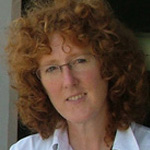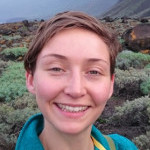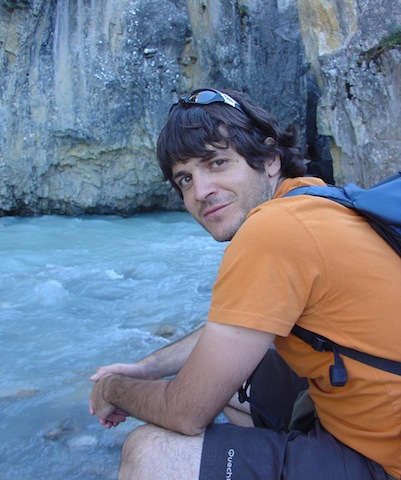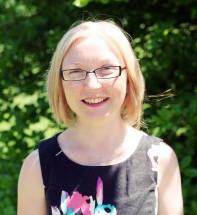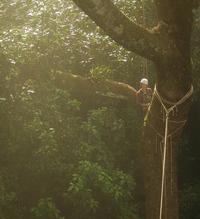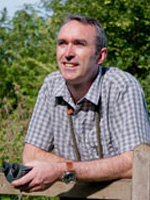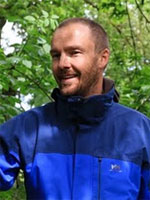NaturEtrade creating a marketplace for ecosystem services
A LIFE+ project funded by the EU and the University of Oxford
In spite of their importance in sustaining human well-being, ecosystem services have not commonly been an object of private-market transactions owing to intrinsic market failures such as lack of information, high transaction costs, and "free-riding". As a result, where ecosystem services are recompensed, it is almost exclusively via government incentives or charitable donation.
Download short NaturEtrade brochures:
The European Commission approved funding for 248 new projects under the LIFE+ programme, the European Union's environment fund in July 2013. The projects covered actions in the fields of nature conservation, climate change, environmental policy and information and communication on environmental issues across all Member States. Overall, they represented a total investment of some EUR 556.4 million, of which the EU provided EUR 281.4 million.
Environment Commissioner Janez Potočnik said at the time:
"The LIFE+ programme continues to provide vital funding for innovative projects. These new projects will make a big contribution to protecting, conserving and enhancing Europe's natural capital. They will support the goal of turning the EU into a resource efficient, greener and more competitive low-carbon economy."
NaturEtrade was one of the projects selected in the LIFE+ Environment Policy & Governance set of pilot projects that aimed to contribute to the development of innovative policy ideas, technologies, methods and instruments.
NaturEtrade is NOT a biodiversity offsetting mechanism. NaturEtrade is a payment- for-ecosystem-services system that enables the marketplace to take into account the economic value of nature and pay for these services where they are deemed to benefit their operations (with a view to creating resilient economies).
The overall aim of this project was to develop an innovative solution to the loss of ecologically-rich land in Europe.
Landowners are very familiar with government grants that help them conserve important biological and cultural features of their land, but there is very little known about how non-government incentive schemes might work in practice. This innovative project demonstrates how landowners and businesses in different European countries can utilise the tools and technologies we have developed to trade in the commodity 'ecosystem services'. In our project, the term 'trade' may be understood to mean 'sponsor' as no property changes hands, but a commitment to maintain the ecosystem services of land registered on NaturEtrade is set up by mutual agreement between two parties. We demonstrate how money can be exchanged for this contract to maintain ecosystem services, but no monetary transactions are being processed during this demonstration phase.
The project has developed a set of tools and technologies that bridges the gap between academic research and policy on ecosystem service provision, and its dissemination to private and public landowners.
An innovative tool that enables landowners to assess the ecosystem service potential of their land. Though based on very complex science, the tool is easy to use by land managers and the outputs are readily understandable by businesses and other potential sponsors of Europe's ecosystem services on privately- or communally-managed land.
A web-based trading platform that demonstrates a novel mechanism to enable private and public sector investment in ecosystem services contained in European land.
The tool was tested with stakeholders in four case study regions, representing different dominant land-uses (UK, Estonia, Portugal, and Romania).
Reports of the project can be read here:
Literature Review of Economics, Auction Design, and Contracts
It is estimated that in Europe there are currently 73 million ha of privately owned forests and peatlands. In order to stabilise greenhouse gas concentration at a level that keeps global warming below 2° C, it is essential that a mechanism for protecting these remaining blocks of privately owned forest and peatlands is developed quickly.
This project presents an opportunity for collecting important data related to the carbon balance of EU forests and peatlands and marketing this regulating service as a tradable ecosystem service commodity to private investors.
People
This research group within the University of Oxford’s Department of Zoology is headed by Professor Kathy Willis. It aims to deliver:
- High quality biodiversity information with strong societal relevance;
- Greater understanding of the processes that lead to sustainable and resilient ecosystems both within and, importantly, beyond protected areas;
- Tools to identify key areas for the long-term provision of biodiversity and the valuation of the ecosystem services that it provides;
- Methodological evaluation frameworks and models to quantitatively measure and compare success of contrasting conservation management policies and initiatives;
- Policy-dialogue networks with stakeholders to ensure two-way knowledge. It is part of the Biodiversity Institute, an Oxford Martin School created to establish a world-class, agenda-setting programme focused on finding pragmatic solutions to address one of the greatest 21st Century challenges: global biodiversity loss. It combines excellent on-going and new cross-disciplinary research across the University with practical applications to meet the needs of stakeholders and governments.
Key people working on NaturEtrade are: Professor Kathy Willis, Dr. Peter Long, Dr. Sandra Nogué, Dr. David Benz, Dr. Gillian Petrokofsky, and Dr. Beccy Wilebore.
Other OxLEL members involved in NaturEtrade:
The Sylva Foundation is a charitable trust and a company limited by guarantee. Its passions are supporting forestry science, promoting trees and their management to the public, and supporting the production and availability of home-grown timber.
It runs a number of projects under the Science, Education and Forestry programmes. Sylva’s charitable objects are to promote the conservation of the environment for the public benefit consistent with sustainable development principles by:
- Advancing education for the public benefit in the theory and practice of sustainable forest management;
- Promoting and conducting research for the public benefit about effective sustainable forest management and the dissemination of the useful results of such research;
- Supporting the development and application of sustainable forest management for the public benefit;
- Advancing education and business enterprise in the design and production of home-grown wood products for the public benefit.
Key people working on NaturEtrade are: Dr Gabriel Hemery, Alistair Yeomans, and Richard Pigott.
The Institute for New Economic Thinking at the Oxford Martin School (INET Oxford) is a multidisciplinary research institute dedicated to applying leading-edge thinking from the social and physical sciences to global economic challenges.
The Institute includes over 60 affiliated scholars from disciplines that range from economics, to mathematics, computer science, physics, biology, ecology, geography, psychology, sociology, anthropology, philosophy, history, public policy, business, and law.
Key people working on NaturEtrade are: Alex Teytelboym who is the Otto Poon Research Fellow at the Economics of Sustainability group at INET Oxford, and Scott Kominers who is a Junior Fellow at the Harvard Society of Fellows and in Spring 2016 he is a Visiting Fellow at the Oxford Martin School.
Alex and Scott are both economists interested in designing markets.




